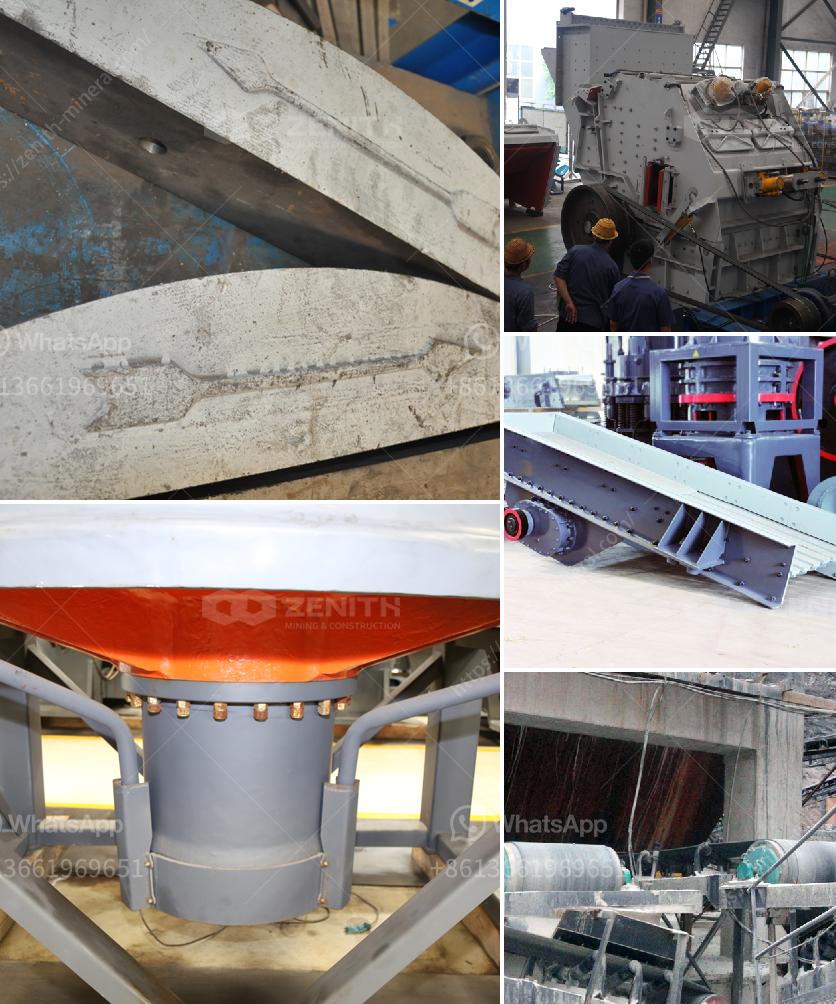Adjusting a cone crusher involves several steps, ensuring the machine runs efficiently and produces the desired product size. Here's a general guide on how to proceed:
Safety First
- Power Down: Before making any adjustments, ensure the crusher is powered off and locked out to prevent accidental startups.
- Protective Gear: Wear appropriate personal protective equipment (PPE), such as gloves, safety glasses, and hard hats.
Steps to Adjust a Cone Crusher
1. Check the Owner's Manual
- Manual: Always refer to the manufacturer's operating manual for specific instructions, as different models may have unique adjustment mechanisms.
2. Understand the Adjustment Mechanism
- Hydraulic Adjustments: Many modern cone crushers have hydraulic adjustment systems, making this task easier and safer.
- Mechanical Adjustments: Older models may require manual adjustment through threaded bolts or shims.
3. Adjusting the Discharge Opening
- Hydraulic System: If your cone crusher uses a hydraulic system:
- Locate the Control Panel: Open the panel to access the hydraulic system controls.
- Make Adjustments: Use the hydraulic control system to adjust the discharge setting to the desired size. This typically involves using buttons or levers to expand or contract the crushing chamber.
- Mechanical System: For crushers requiring manual adjustment:
- Locate the Adjustment Mechanism: This is usually found near the bottom of the main frame.
- Loosen the Lock Bolts: Use the appropriate tools to loosen the lock bolts that keep the adjustment mechanism in place.
- Turn the Adjustment Ring or Bolts: Rotate the adjustment ring or bolts to move the mantle up or down, thereby changing the size of the discharge opening.
- Tighten the Bolts: Once you've achieved the desired setting, retighten the lock bolts to secure the mechanism.
4. Check the Settings
- Measurement: Use a ruler or calipers to measure the discharge opening, ensuring it matches the desired product size.
- Test Run: After adjustments, run the crusher to verify the new settings are producing the required size of material.
5. Fine-tuning
- Run the Machine: Allow the cone crusher to operate for a short period, processing some material.
- Inspect Product Output: Check the output material to ensure consistency and size requirements.
- Readjust if Needed: If the product size is not satisfactory, repeat the adjustment steps.
Maintenance Tips
- Regular Inspection: Regularly check the wear parts and overall condition of the crusher.
- Lubrication: Ensure all moving parts are properly lubricated as per the manufacturer's guidelines.
- Record Keeping: Maintain a log of adjustments and maintenance activities for future reference.
By following these steps, you can ensure your cone crusher operates efficiently and produces high-quality, consistent material size. Remember, safety and adherence to the manufacturer’s guidelines are paramount.


